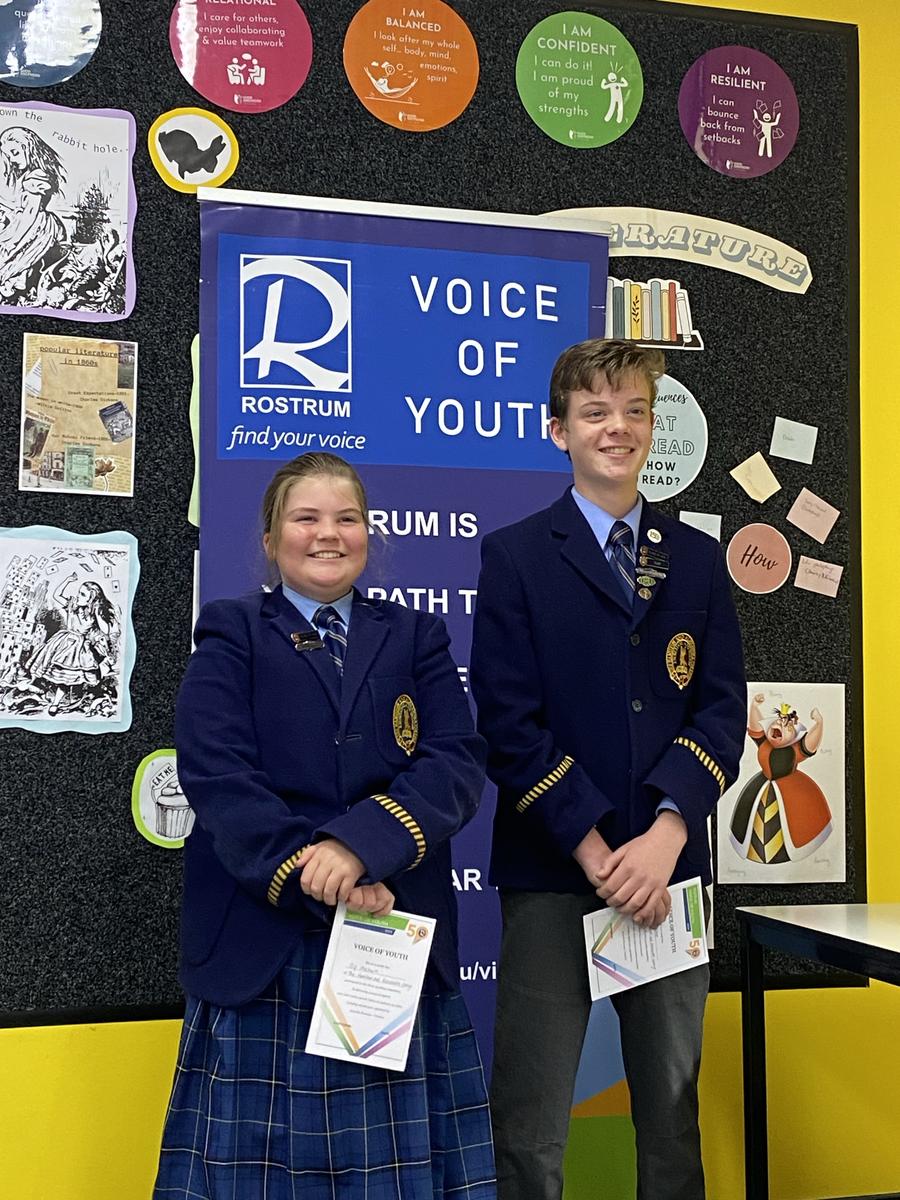Director Learning and Teaching
- Mrs Anna Robertson

Director Learning and Teaching
- Mrs Anna Robertson
This week, I wanted to take the opportunity to highlight mathematics learning and teaching across our school. Learning about mathematical concepts and ideas begins early in life, and parents and carers are a child’s early educators in the subject. Singing nursery rhymes about five little ducks, asking children to weigh or count cooking ingredients, talking about shapes and numbers during walks and on signs, and using words to explain where things are positioned are the sorts of simple tasks that families naturally include that introduce maths to children and demonstrate the ways in which these skills are critical to everyday life.
As children enter our Early Learning Centre, these ideas are built upon through purposeful play-based experiences both inside and outside. Students might count blocks as they build and answer an educator’s question about what shapes they are building with. As they learn to line up with their classmates to walk safely around the school, they might discuss ordinal numbers, such as which of their friends might be first or second in the line.
The transition to more formal mathematics instruction begins as they move into the Junior School. This year we have implemented the Ochre Education Resources across Junior School, further aligning our teaching with Evidence-based teaching practices. These resources reflect the growing evidence base for effective teaching practices, including explicit instruction, formative assessment and retrieval and spaced practice.
Curriculum materials from Ochre are sequenced and mapped deliberately and coherently, presenting new materials incrementally, connecting new content to prior learning, and giving students ample opportunities to practice. They provide teachers with high-quality, evidence-based lessons designed to be easily adaptable through teachers’ professional judgement to meet varied learning needs and contexts. They also reduce the workload of planning and allow teachers to spend more time focusing on the needs of students in their classes.
Mathematics teaching and learning in the middle and senior years continue to be the line of evidence-based teaching practices. Our Maths Faculty, led by our Head of Mathematics, Deb Davis, work together to share, implement and refine teaching practice based on our understanding of how our students learn best in mathematics. Regular routines occur across classes, such as carefully chosen lesson starters that prompt learners to focus on maths content as they transition from other learning areas, consistent workbook practices and homework instructions across year levels. Teachers employ similar strategies in order to check for understanding, use worked examples to scaffold learning, and continuously review content built into the planning of lessons and units.
These teaching practices connect the teaching and learning of mathematics across our school from the earliest years and support our students by ensuring the focus of their learning is on the mathematical concepts being explored rather than different routines, languages or methods of instruction.
I am often asked how families can help with maths at home. Obviously, in the middle and senior years, this is usually related to homework, but my answer – after practising times tables – is always games. Playing games with family members is a fun and enjoyable way to explore mathematical concepts and strategies, engage in logical thought, and problem-solve. Games also teach collaboration and help students and their families develop perseverance. Strategy games, such as Connect 4, Junior Monopoly, Monopoly, Pass the Pigs, noughts and crosses, Mastermind, Guess Who, battleships, checkers and chess, Mancala, card games (e.g., Set, Spot it) and dice games (e,g., Yahtzee) are excellent options. I have included below some links to online resources that you might like to explore for a range of ages.
Primary Students
Families might like to make their own games or find games online.
20 Maths Games For Young Children: Free eBook (kathleenamorris.com)
Secondary Students (could also be suitable for Upper Primary)
Secondary Interactive Games and Challenges
Students can play online or make a version for home. Try Connect Three which uses two spinners with positive and negative numbers and a game board, players choose addition or subtraction and try to get three in a row and block their opponent.
All ages
A collection of fabulous online games to explore. Try Building Site, Photo Hunt, Spinners, Dice duels, Scatterplots, Graph Investigator, and many more.
I would love to hear if you try any of these games or if you have any family favourites.
Enrichment Programs at Junior School
In 2024 we will run the following ASSMO Mathematics enrichment programs
We will use ICAS REACH Mathematics testing for Years 2-6 to provide cohort data and the top 10% of our students will be offered the opportunity to sit the ICAS competition Mathematics paper.
Anna Robertson
Director of Learning and Teaching


Last Saturday, four College students participated in the annual Rostrum Voice Of Youth (RVOY) regional competition held at Good Shepherd College, well attended by schools from both Hamilton and Portland.
Pip Mecham (Year 7), Mhairi McDonald (Year 7) and Henry Horne (Year 8) competed in the 6-minute junior category choosing ‘End of an era’, ‘Building bridges’, and ‘Age is no barrier’, as their respective topics.
Phoebe Baker (Year 10) competed against seniors in the 8-minute category, speaking on the topic ‘Words have power’.
The students wrote their own speeches, drawing on their knowledge and extensive research. Each student gave it their all, with several of them having never participated in public speaking before. A special congratulations goes to Henry Horne, who was selected to participate in the semi-final, with the addition of a 3-minute impromptu speech. Each student should be so proud of their efforts, and I look forward to seeing them compete in future competitions!
Hannah Croft
Captain Debating and Public Speaking